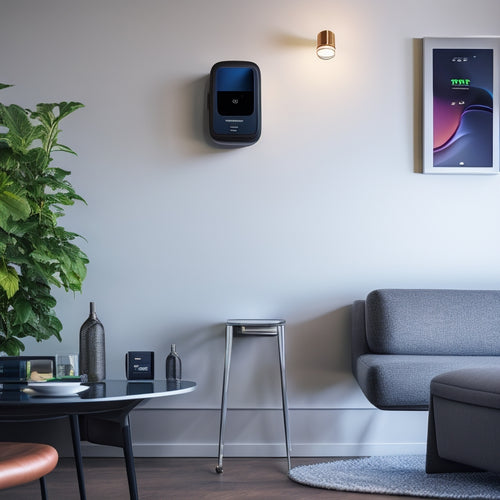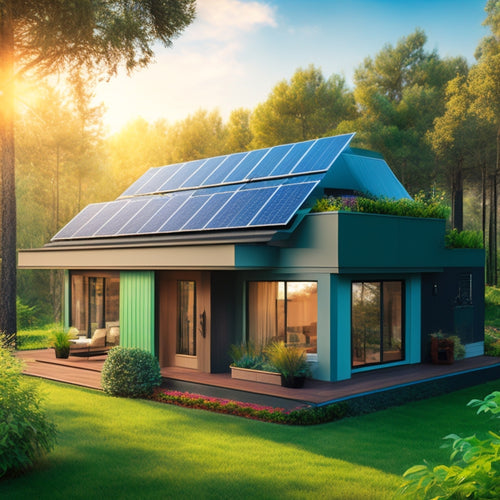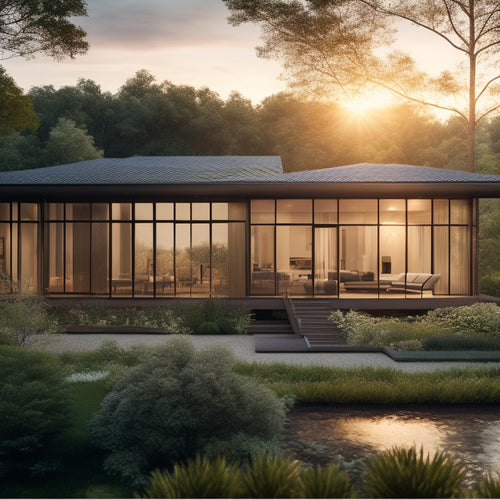
What Are the Best Van Roof Options for You?
Share
You're considering a van roof that checks all the boxes - functionality, personal style, and meeting your unique needs. To start, think about solar panels for generating power and reducing your carbon footprint. Eco-friendly materials can also provide a sustainable living solution. Next, choose from fiberglass, aluminum, PVC, or TPO roofs, considering durability, aesthetics, and insulation. Insulation can boost energy efficiency, reduce noise, and prevent moisture buildup. Finally, customize your roof space with storage solutions, interior design, and ventilation systems. There's more to explore - and finding the perfect fit for you is just around the corner.
Key Takeaways
• Consider solar panels for your van roof to decrease carbon footprint and provide cost-effective energy solutions.
• Choose durable and corrosion-resistant materials like fiberglass, aluminum, PVC, or TPO for your van roof.
• Insulated van roof options can maximize energy efficiency, reduce noise levels, and prevent moisture buildup.
• Customize your van roof space by optimizing storage solutions, enhancing ambiance with interior design, and installing overhead shelves.
• Ensure high-quality mounting systems and consider tilt and orientation of panels for optimal energy harvesting.
Solar Panels for Van Roof
When outfitting your van's roof with solar panels, you'll want to contemplate the type and quality of the panels, as well as the mounting system, to guarantee a dependable and efficient energy harvest. This is vital for off-grid adventures, where energy independence is paramount.
You'll want to ponder the wattage and voltage of the panels, as well as the type of cells used (monocrystalline or polycrystalline). A high-quality mounting system is also vital to make sure the panels are securely fastened to your van's roof.
You'll also want to ponder the tilt and orientation of the panels to maximize energy production. A tilting system can help you adjust the panels to optimize energy harvest, especially during periods of low sunlight. Additionally, verify the panels are compatible with your van's electrical system and battery type.
Benefits of Eco-Friendly Roofs
By choosing eco-friendly roof solutions, you'll not only decrease your carbon footprint but also create a more sustainable and environmentally responsible adventure mobile. As you begin your journey, you'll want to make sure that your van roof is not only functional but also gentle on the planet.
Here are some key benefits of eco-friendly roofs:
| Benefits | Description |
|---|---|
| Reduced Carbon Footprint | Lower emissions and decreased environmental impact |
| Sustainable Living | Contribute to a healthier planet for future generations |
| Cost-Effective | Energy-efficient solutions reduce fuel consumption and save you money |
Types of Van Roof Materials
To guarantee, it's crucial to
As you explore eco-friendly van roof options, you'll encounter a range of materials, each with its unique characteristics, advantages, and environmental impact. From durable and sustainable options to stylish and functional ones, the choices can be overwhelming. Let's break down the most popular types of van roof materials to help you make an informed decision.
When it comes to roof durability, fiberglass and aluminum roofs stand out for their strength and resistance to corrosion. Fiberglass roofs, in particular, offer exceptional durability and can withstand harsh weather conditions. On the other hand, aluminum roofs are lightweight, corrosion-resistant, and provide excellent thermal insulation.
If material aesthetics are a top priority, consider PVC or TPO (thermoplastic polyolefin) roofs. These materials offer a sleek, modern look and are available in various colors and patterns. Plus, they're resistant to UV rays, fading, and cracking.
Whatever your priorities, it's important to weigh the pros and cons of each material to find the perfect fit for your van. By understanding the characteristics of each material, you'll be well on your way to selecting a roof that meets your needs and guarantees a safe, comfortable ride.
Insulated Van Roof Options
You'll want to explore insulated van roof options to maximize energy efficiency and reduce noise levels in your vehicle. Insulated roofs provide thermal efficiency, keeping your van warm in the winter and cool in the summer. This means you'll use less energy to heat or cool your van, saving you money on fuel costs.
Here are some key benefits of insulated van roof options:
-
Improved Thermal Efficiency: Insulation reduces heat transfer, keeping your van at a comfortable temperature.
-
Soundproofing Features: Insulated roofs can reduce outside noise, making for a quieter ride.
-
Reduced Condensation: Insulation prevents moisture buildup, reducing the risk of mold and mildew.
- Increased Durability: Insulated roofs are more resistant to weathering and corrosion.
Customizing Your Van Roof Space
Customizing Your Van Roof Space
Your van's roof space is a blank canvas waiting for your creative touch, where every inch can be optimized to fit your unique needs and lifestyle. As you envision your dream van, consider how you'll utilize the roof space to enhance your adventures.
| Storage Solutions | Interior Design |
|---|---|
| Overhead shelves for luggage | Soft, ambient lighting |
| Roof-mounted cargo carriers | Customizable storage nets |
| Retractable storage bins | Ventilation systems for airflow |
When customizing your van's roof space, prioritize storage solutions that cater to your specific needs. Install overhead shelves for luggage, roof-mounted cargo carriers, or retractable storage bins to maximize storage capacity. Additionally, consider interior design elements that enhance your van's ambiance, such as soft, ambient lighting, customizable storage nets, and ventilation systems for airflow. By balancing functionality and aesthetics, you'll create a comfortable, safe, and personalized space that reflects your adventurous spirit.
Frequently Asked Questions
Can I Install a Van Roof Myself or Do I Need a Professional?
'If you're comfortable with DIY projects and have decent DIY skills, you can install a van roof yourself, but if you're unsure, it's recommended to seek professional guidance to guarantee a safe and secure installation.'
How Do I Ensure My Van Roof Is Watertight and Leak-Free?
'Ha! You think a leaky van roof is a minor issue? Think again! To guarantee a watertight seal, you'll need to conduct regular Roof Inspections and choose the right Sealant Types, like silicone or polyurethane, to keep the rain out and your gear dry.'
Are There Any Specific Van Roof Options for Off-Grid Adventures?
When planning Wilderness Escapes, you'll want Adventure Upgrades like pop-top roofs or fixed high-top roofs with insulated panels for maximum durability and weather resistance, ensuring your off-grid adventures remain safe and comfortable.
Can I Add a Roof Rack or Storage to My Existing Van Roof?
You'll need to take into account roof reinforcement to make sure your van's structure can handle the added weight of a roof rack or storage, guaranteeing your cargo capacity isn't compromised and you stay safe on the road.
Do Van Roof Options Affect My Vehicle's Insurance and Registration?
"When you modify your van's roof, you'll want to check how it affects your insurance premiums and registration requirements, as changes can impact your rates or compliance with local laws, so research and plan ahead to avoid surprises."
Related Posts
-

7 Best EV Battery Health Trackers for Homeowners
You can maximize your electric vehicle's performance and lifespan by leveraging advanced battery health trackers that...
-

3 Green HVAC Filters for Solar-Powered Homes
When outfitting your solar-powered home with an HVAC system, you'll want to choose filters that align with your commi...
-

7 Solar-Safe Window Solutions for Earth-Conscious Homeowners
As an earth-conscious homeowner, you're likely keen to find solar-safe window solutions that align with your values. ...


